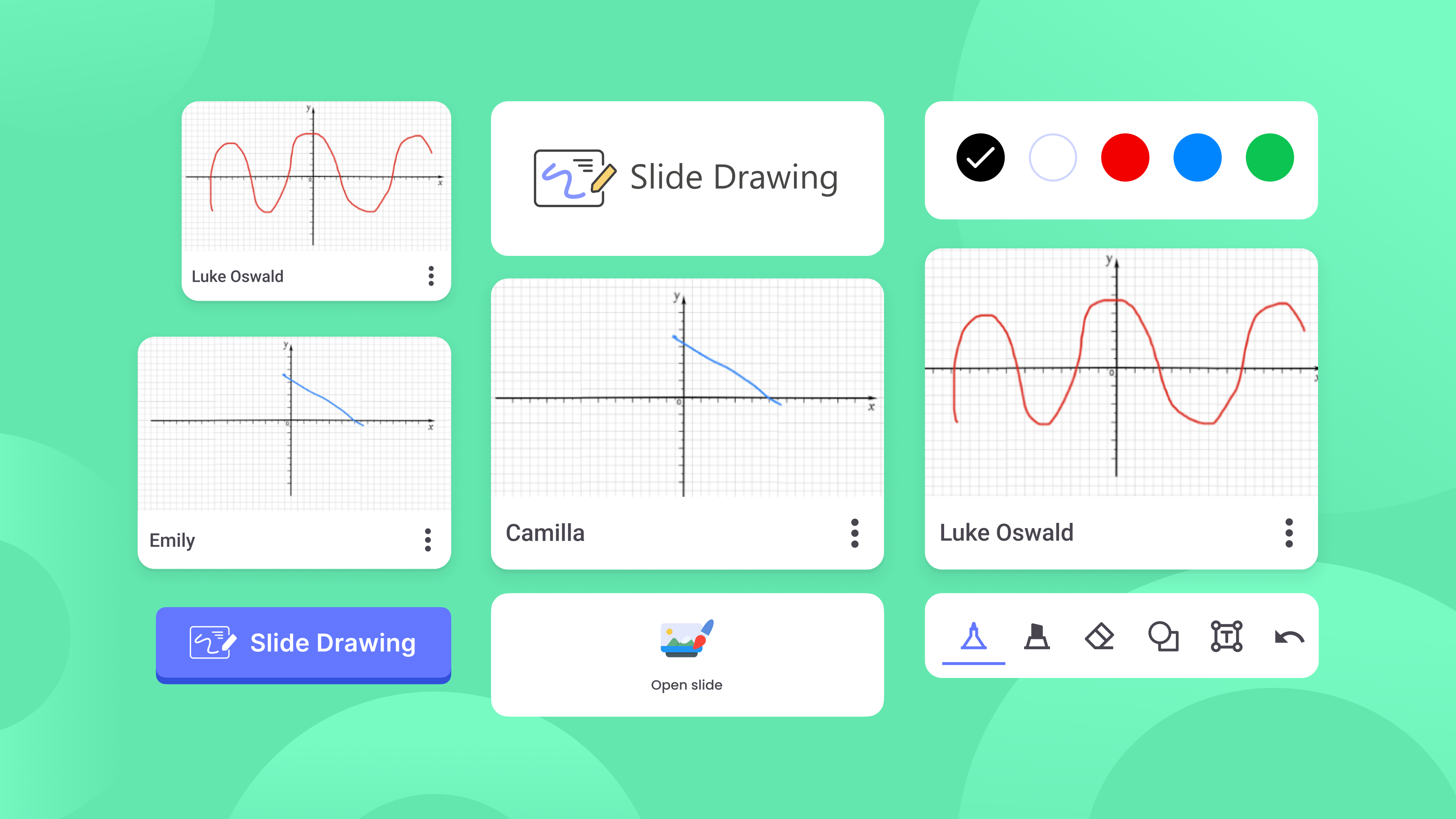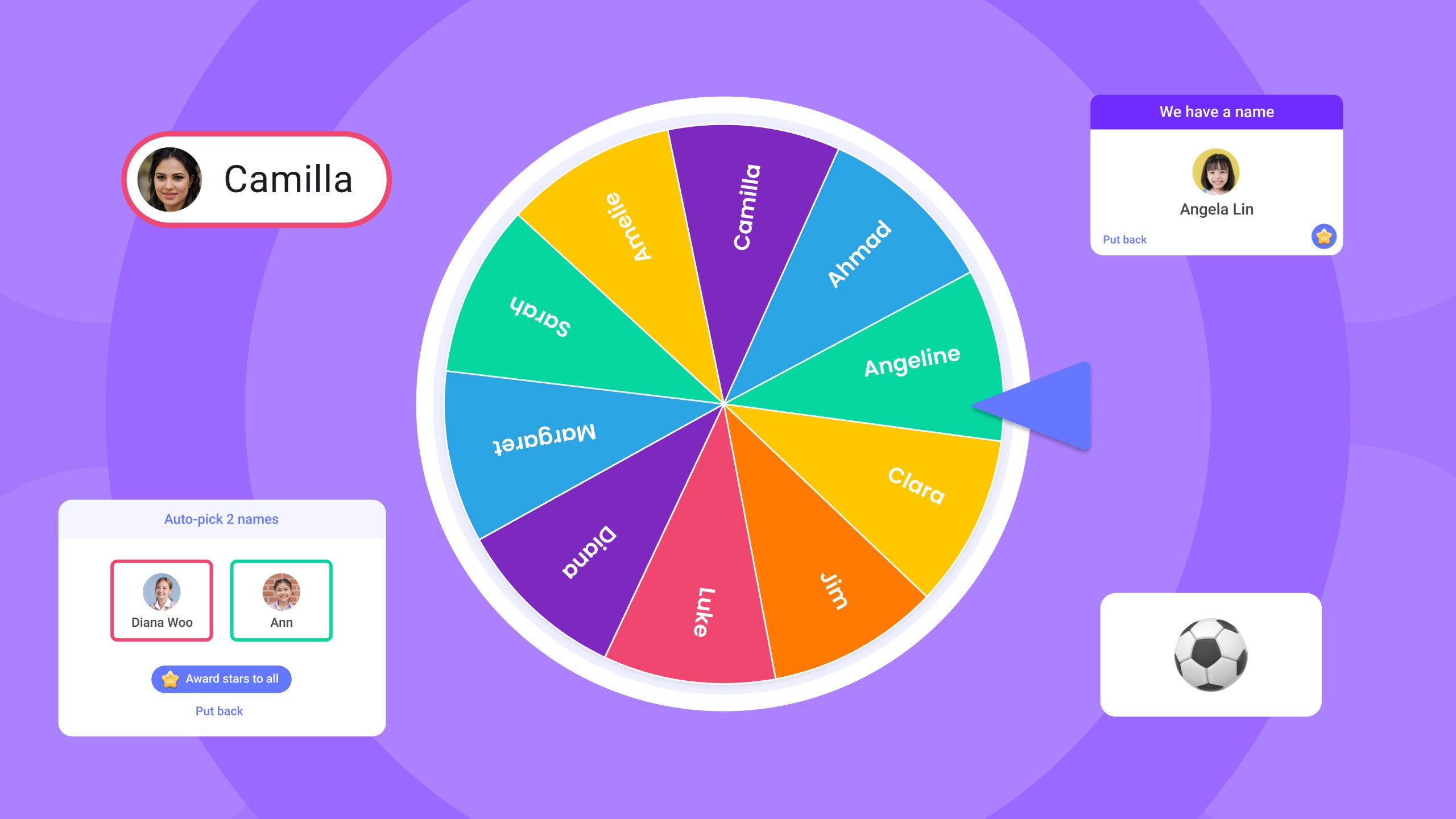The Ultimate Gen Z Terms Dictionary (Latest Top 70 Slangs You Need to Know)!
Feeling ‘cheugy’ around your Gen Z friends, colleagues and students who always seem to be ‘ghosting’ you and away from their desks because the ‘vibe’ is not right? 🫠
Gen Z, the generation born between 1995-2009, currently still in school or newly entering workforce, has a special set of vocabulary, which shares a lot of similarities with Gen Alpha slangs. Not knowing them may leave many feel disconnected with the younger generation. 😕
Fret not, this guide is to help you to navigate these slang terms with confidence and be closer with your Gen Z ‘fam’. Iykyk. 😉
Why learn Gen Z terms?
Enhanced Communication 💬: Getting the hang of Gen Z terms can seriously level up how you connect with younger folks. Whether you’re chatting at work, chilling with friends, or having a convo with your student, it makes everything smoother and more relatable.
Cultural Relevance 💗: Keeping up with the latest slang means you’re always in the loop with what’s popping in pop culture, and better connect with a culturally diverse classroom. Staying lit with your language helps you avoid looking like a total boomer.
Inclusivity and Engagement 🌟: Learning Gen Z terms shows you’re down to connect with Gen Z-ers better. Flexing your slang skills isn’t just about clout; it’s about showing you genuinely care about vibing with them, making a friends gathering, meeting or classroom management more engaging.
A-Z Gen Z Terms/Slang Dictionary – Save Them Now! 😎
- Ate: To do something exceptionally well, especially in a confident or stylish manner.
- Example: “She really ate that performance, didn’t she?”
- Banger: A great song or something that is outstanding.
- Example: “Have you heard their new track? It’s a total banger.”
- Basic: Conforming to mainstream trends or lacking originality.
- Example: “Ugh, this show is so basic. Let’s watch something else.”
- Based: Being yourself confidently without caring about others’ opinions.
- Example: “He said what everyone was thinking; that’s so based.”
- Bet: A term used to confirm or agree with something.
- Example: “We look cool together. Bet.”
- Boujee: High-class, luxurious, or fancy.
- Example: “We’re going to that new boujee restaurant tonight.”
- Bussin’: Extremely good or tasty.
- Example: “This pizza is bussin’!”
- Camp: Exaggerated, theatrical, and humorous style.
- Example: “Her Met Gala outfit was total camp.”
- Cap: A lie or false statement; often used as “no cap” to mean “no lie.”
- Example: “No way you did that, that’s cap!”
- CEO: The best at something, as in “CEO of procrastination.”
- Example: “She’s the CEO of procrastination.”
- Cheugy: Something that is out of date or trying too hard to be trendy.
- Example: “That outfit is so cheugy, no one wears that anymore.”
- Clapback: A sharp or witty retort, often in response to criticism.
- Example: “Did you see her clapback on Twitter? It was savage.”
- Cook: To perform exceptionally well, often in a competitive setting.
- Example: “He cooked during the game last night, scoring 30 points!”
- Dab: A dance move or a way to show accomplishment.
- Example: “He dabbed after winning the race.”
- Dank: High quality, especially in reference to memes or weed.
- Example: “Check out this dank meme I found.”
- Delulu: Short for delusional, often used to describe someone out of touch with reality.
- Example: “Thinking he’s going to get back with her is so delulu.”
- Drip: Stylish or fashionable, often related to clothing.
- Example: “His outfit has so much drip.”
- E-boy or E-girl: A style characterized by emo, goth, and internet culture aesthetics.
- Example: “He’s totally dressed like an E-boy today.”
- Extra: Over-the-top or excessive in behavior or style.
- Example: “She’s so extra with her birthday decorations.”
- Fam: Short for “family,” referring to close friends or family members.
- Example: “What’s up, fam?”
- Finesse: To handle a situation with skill or to trick someone.
- Example: “She really knows how to finesse her way out of trouble.”
- Finna: Going to or planning to do something.
- Example: “I’m finna go to the store.”
- Fire: Something that is really good or cool.
- Example: “That new album is fire!”
- Fit check: Showing off or asking for feedback on one’s outfit.
- Example: “Fit check! How do I look for the party tonight?”
- Glow up: A significant transformation, typically for the better.
- Example: “She had such a glow up over the summer.”
- Girlboss: A confident, successful woman who is ambitious and in charge.
- Example: “She started her own company at 25; she’s such a girlboss.”
- G.O.A.T.: Acronym for “Greatest of All Time.”
- Example: “LeBron is the G.O.A.T. of basketball.”
- Guap: A large amount of money.
- Example: “He’s making so much guap with his new job.”
- Hits different: Something that has a unique or stronger impact.
- Example: “This song hits different when you’re driving at night.”
- High-key: Definitely or very; the opposite of “low-key.”
- Example: “I high-key need a vacation right now.”
- I’m weak: Finding something extremely funny.
- Example: “That joke you told? I’m weak.”
- Iykyk: Acronym for “If You Know, You Know,” implying insider knowledge.
- Example: “The party last night was wild, iykyk.”
- It’s giving: Used to describe the vibes or impression something provides.
- Example: “This outfit? It’s giving 90s grunge.”
- I’m weak: Finding something extremely funny.
- Example: “That joke you told? I’m weak.”
- L: A loss or failure.
- Example: “I took an L on that test.”
- Living rent-free: When something occupies your thoughts constantly.
- Example: “That joke is living rent-free in my head.”
- Lowkey: Secretly, subtly.
- Example: “I am lowkey screaming inside when I met my idol for the first time.”
- Main character: The person who is the center of attention or feels like the protagonist in a situation.
- Example: “Today, I’m feeling like the main character.”
- Mid: Mediocre or average.
- Example: “The movie was just mid, nothing special.”
- No cap: Indicates that someone is telling the truth or being serious.
- Example: “I just got tickets to the concert, no cap.”
- Oof: An expression of empathy or acknowledgment of a tough situation.
- Example: “You missed your flight? Oof, that sucks.”
- Pookie: An affectionate or endearing term for a close friend or loved one.
- Example: “Good morning, pookie! Did you sleep well?”
- Period (or Periodt): An emphatic way of saying “period” to end a statement definitively.
- Example: “That’s how it is, periodt.”
- Pick-me: Someone who craves attention and approval, often by putting others down.
- Example: “She’s such a pick-me, always trying to outdo everyone.”
- Rizz: Charisma or charm, especially in the context of attracting others.
- Example: “He’s got so much rizz, everyone loves him.”
- Sending me: Making me laugh hard.
- Example: “That video you shared is sending me!”
- Sheesh: An exclamation of surprise or amazement.
- Example: “Sheesh, that new car is amazing!”
- Sigma: Someone who is independent and self-reliant, often rejecting social norms.
- Example: “He doesn’t follow the crowd, he’s a real sigma.”
- Simp: Someone who shows excessive sympathy or attention towards someone they like.
- Example: “He’s such a simp for always buying her gifts.”
- Sip tea: To mind one’s own business or stay out of drama.
- Example: “I’m just going to sit back and sip tea while the drama unfolds.”
- Situationship: A romantic relationship that is not formally defined.
- Example: “We’re kind of in a situationship, not official but more than friends.”
- Skrrt: An exclamation imitating the sound of screeching tires, used to express excitement or departure.
- Example: “Skrrt! Let’s get out of here.”
- Slaps: Very good or enjoyable, usually referring to music.
- Example: “This new song slaps so hard.”
- Smol: Extremely small and cute.
- Example: “Look at that smol puppy, it’s so cute!”
- Snack: Someone who looks attractive or desirable.
- Example: “He looks like a whole snack in that outfit.”
- Snatched: Looking good or fashionable.
- Example: “Her outfit is snatched.”
- Stan: A devoted fan of someone or something.
- Example: “I totally stan her music.”
- Sus (or suss, short for suspicious): Short for “suspicious” or “suspect.”
- Example: ” His story sounds suss to me.”
- Take several seats: Telling someone to calm down or stop talking.
- Example: “You need to take several seats with that attitude.”
- Tea: Gossip or personal information about someone.
- Example: “Spill the tea, what happened at the party?”
- This ain’t it, chief: This is not acceptable or correct.
- Example: “That idea? This ain’t it, chief.”
- Touch grass: A reminder to go outside and take a break from screens or the internet.
- Example: “You’ve been online all day, go touch grass.”
- Vibe: The mood or energy of the environment, or just in general.
- Example: “The vibe today is off. I don’t feel like doing anything.”
- Vibe check: Assessing the mood or feeling of a situation or person.
- Example: “Let’s do a vibe check, how’s everyone feeling?”
- W: A win or success.
- Example: “I got an A on my test, that’s a big W!”
- Woke: Being aware of social and political issues.
- Example: “He’s really woke about social issues.”
- Yeet: To throw something with force or as an exclamation of excitement.
- Example: “Yeet! I’m done with exams!.”
- Yap: To talk excessively or annoyingly.
- Example: “He wouldn’t stop yapping during the whole movie.”
- Yikes (or Big Yikes): An expression of surprise or dismay.
- Example: “Yikes, I forgot to study for the test!”
- Zesty: Something that is exciting, lively, or full of energy.
- Example: “Her dance moves are so zesty, she’s amazing on stage.”
5 Fun Activities for Teachers Engaging with Gen Z Students 🤩
- Literary Analysis of Popular Music: Have students analyze song lyrics from different genres to identify slang terms and guess which generation the slangs belong to.

Pro Tip: Try interactive trivia in the class and reward the fastest responses with stars and badges!
- Slang Word Etymology: Have students research the origins of specific slang terms or phrases. They can create timelines, infographics, or presentations tracing the evolution of these terms from their inception to their current usage, highlighting cultural influences and shifts.

Pro Tip: Invite students to give more interactive presentations by annotating directly on the words on the presentation slides.
- Slang Word Pictionary: Create a game where students draw or act out slang terms while their classmates guess the meanings. This activity encourages creativity, teamwork, and critical thinking as students interpret and explain slang terms in a fun and engaging way.

Pro Tip: Use Slide Drawing to allow students to easily illustrate their ideas from their own devices, and participate in a fun life quiz!
- Slang and Identity: Have students reflect on how their use of slang and language choices shape their personal identities and social interactions. They can write reflective essays, create personal narratives, or participate in group discussions exploring the role of language in expressing cultural identity and belonging.

Pro Tip: Use Name Picker and Grouping to get students into groups for more close knit discussions.
- Slang Debate: Organize lighthearted debates where students argue the merits and drawbacks of popular slang terms. This activity encourages critical thinking, research skills, and effective communication as students defend their perspectives on the cultural relevance and impact of slang.
Pro Tip: Use a Timer to ensure concise points and discussions, and equal opportunities for everyone to chip in their ideas.
Final Thoughts
Now that you are the CEO of Gen Z terms, you can better connect with your friends, colleagues and students in 21st century classrooms, no bet! Before you know it, you will be able to flex your slang game effortlessly in any situation. Learn more about how to engage with Gen Z-ers here by discovering their learning styles.
Comments
Post a Comment